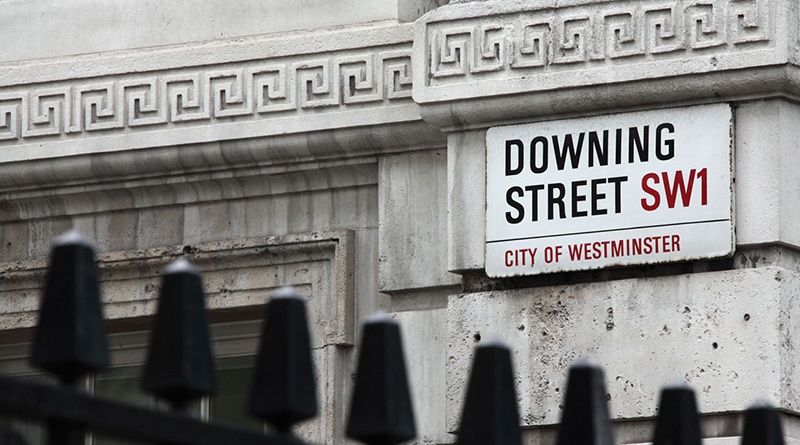Industry Reacts to Rishi Sunak’s First Budget

Chancellor Rishi Sunak’s first Budget speech has concentrated on fiscal action to combat the temporary effects of Coronavirus, including business rates suspensions, statutory sick pay and a business interruption loan scheme.
The hospitality industry has also welcomed a long called for freeze alcohol duty.
Coronavirus emergency measures
- Business rates suspended for one year for small businesses in hospitality
- Business interruption loan scheme of up to £1.2m to support SMEs
- 14 days statutory sick pay refunded for businesses with fewer than 250 employees – 14 days statutory sick pay covered
- Abolition of business rates for one year for small businesses (rateable value under £51k)
- £3,000 benefit to all businesses eligible for SBRR or rural rates relief
Business rates
- Business rates system review to be completed by Autumn Budget
- Pubs discount raised to £5,000
Alcohol duty
- Alcohol duties frozen
 UKHospitality Chief Executive, Kate Nicholls, reacted to the details of today’s Budget Statement, saying:
UKHospitality Chief Executive, Kate Nicholls, reacted to the details of today’s Budget Statement, saying:
“Hospitality businesses are on the front line of coronavirus impacts and need support as footfall and bookings drop and people self-isolate, and as serious cashflow problems arise.
“While easing business rates burdens and partial refunding of statutory sick pay will help support some businesses but while the measures announced today may give smaller hospitality businesses some breathing room, it’s vital to recognise larger operators, and the huge number they support, but which have today been utterly ignored at a time of business crisis.
“The perverse nature of the current system is underlined by the ongoing coronavirus situation, with punishing payments still expected of companies whose venues may not be able to open or operate.”
“We finally have a much-welcome deadline for a review of the archaic business rates system. While the outcome of that remains to be seen, it’s a positive step that the Government acknowledges that the system requires modernising and improving.
“We also recognise that measures announced today, to further relieve pubs and to bring other hospitality venues into scope for reliefs are a positive recognition of hospitality and the vital role it plays in the UK’s economy and culture. That said, many of the hardest hit businesses will not benefit, either because they have rateable values above £51k (or above £100k for pubs) or because state aid rules mean that venues in bigger chains – the larger employers – will be ineligible, so more will likely be needed between now and implementation of a new system”.
 The BII has also warmly welcomed the support shown to the hospitality industry by Rishi Sunak in his first budget as Chancellor.
The BII has also warmly welcomed the support shown to the hospitality industry by Rishi Sunak in his first budget as Chancellor.
Steven Alton, BII COO commented “We are extremely pleased that in these turbulent times, government is taking the radical step of abolishing business rates for pubs with a rateable value of less than £51k for the next year.
Pubs are at the core of high streets and rural communities alike and the challenges they currently face are unprecedented. This relief, coupled with the sick pay support for those self-isolating in the midst of Coronavirus, is great news for those working in the frontline of hospitality.
In addition, the news that business rates will be reviewed this year gives us hope that measures bringing short term relief will be backed up by rate reforms that could bring long term growth to our vibrant and vital sector.”
 Commenting on the Chancellor’s announcement for a freeze to wine and spirit duty Miles Beale, Chief Executive of the Wine and Spirit Trade Association, said:
Commenting on the Chancellor’s announcement for a freeze to wine and spirit duty Miles Beale, Chief Executive of the Wine and Spirit Trade Association, said:
“The decision to freeze wine and spirit duty is welcome for British business, pubs and the wider hospitality trade. While he has not cut duty, it is reassuring to see that in his first Budget as Chancellor, Rishi Sunak MP, has taken steps to address the UK’s excessively high duty rates.
He has shown he is in touch with British consumers – from all walks of life – who want to enjoy a drink without getting stung by further tax hikes. In particular the UK’s 33 million wine lovers, a large proportion of whom are women, are expressing a sigh of relief after they were singled out for a duty rise at the last Budget.
 Responding to today’s Budget statement, National Chairman of the Federation of Small Businesses (FSB), Mike Cherry, said:
Responding to today’s Budget statement, National Chairman of the Federation of Small Businesses (FSB), Mike Cherry, said:
“This is a pro-small business Budget, which has delivered a high streets bonus, a series of Conservative manifesto promises to small businesses, and emergency steps to support small firms through the coronavirus outbreak.
“Covering the cost of Statutory Sick Pay and emergency measures for the self-employed are particularly welcome. Removing the minimum income floor for those on Universal Credit will bring help to those working hard to keep their businesses going. These are vital contingencies for the UK’s 5.8 million-strong small business and self-employed community. There may need to be further steps in the weeks and months ahead. The Bank of England funding package means that there are no excuses for banks not to help, when a small business customer is in distress.
“Suspending business rates for small high street firms is a huge bonus for our town centres and high streets. Together with extra cash for those that already qualify for small business relief, this shows a real commitment to supporting small businesses at the heart of communities. The case for fundamental reform to bring down the burden of such a regressive tax on bricks-and-mortar businesses is now stronger than it has ever been, and FSB is ready to help the Government deliver this.
“One of FSB’s main asks at this Budget was a cut to the Jobs Tax, an easing of the cost of employer National Insurance, and we are very pleased to see such a pro-growth, pro-employment measure delivered for all small employers. A National Insurance holiday for small firms employing military service leavers will incentivise tapping the skills and potential of those joining the workforce after a career in the armed forces.
“This has been a deliberately pro small business first budget for the Chancellor. We hope it is the start of things to come.”
 Responding to the Chancellor’s Budget, Emma McClarkin, Chief Executive of the British Beer & Pub Association, commented:
Responding to the Chancellor’s Budget, Emma McClarkin, Chief Executive of the British Beer & Pub Association, commented:
“Pub goers across the UK will be toasting the Chancellor tonight for freezing beer duty. This freeze alone will save pub goers £80 million and secure 2,000 vital jobs across the country.
“82% of the beer we drink here is brewed in the UK, so this is a very welcome decision that will help pubs and brewers across the UK. Cheers to the Chancellor!
“At the beginning of the year we welcomed the Government’s decision to cut business rates for the UK’s smallest pubs by £1,000. It is great to see the Chancellor listen to our calls to take this one step further by increasing the relief to £5,000 for pubs with a rateable value up to £100,000.
“The announcement that pubs with a Rateable Value of £51,000 or less will not pay their rates over the next financial year is an enormous boost. For pubs who already pay little or no business rates, a £3,000 small business relief grant is available, which 14,000 pubs could benefit from.
“In total the additional business rates support announced for pubs is worth over £190 million.
“Pubs pay 2.8% of rates despite accounting for only 0.5% of rateable turnover across the country. Such reliefs are vital until the fundamentally unfair system is overhauled. We therefore welcome the call for evidence on business rates reform announced today, commencing in the spring.
“Following the extensive review into Small Brewer’s Relief, we welcome confirmation that the Government will publish its results in the spring. We hope the Government’s response will recognise the long-standing distortions caused by the current structure, whilst supporting growth among brewers of all sizes.
“Overall, this has been a great Budget for pubs, pub goers and Britain’s world-class brewing industry worth £270 million. We hope the Government continues to support our industry in the future, recognising the vital role it plays in our communities and lives across the UK.”
 Wine expert Joe Fattorini, spokesperson for Wine Drinkers UK:
Wine expert Joe Fattorini, spokesperson for Wine Drinkers UK:
“The recognition by the Chancellor that wine is the nation’s favourite alcoholic drink and therefore shouldn’t be singled out for tax rises is welcome news for the 33 million wine fans in the UK.
“Now it’s time to go one step further and cut back wine tax in the coming year. The last Chancellor to do so was Nigel Lawson, 36 years ago, when wine would not have been as regular a feature in British shopping baskets.
“This year, over half of shoppers are set to be priced out as the price of an average bottle rises above £6. With women and the working class being disproportionately penalised by this unfairness, we will continue to lobby for a better deal. It’s high time to reduce wine duty.
“Today’s freeze is a victory for the WSTA’s hard fought campaign which called on government to help cash-strapped consumers by keeping prices down, and to support British businesses entering a new trading landscape.”
We will all raise a glass to the Chancellor tonight, who has recognised that everyone benefits from a freeze, including the Treasury.”
 Commenting on announcements in the Budget, CAMRA Chairman Nik Antona said:
Commenting on announcements in the Budget, CAMRA Chairman Nik Antona said:
“Against the backdrop of industry fears on Coronavirus, it is good to see the Government has continued to recognise the value of pubs to the economy and society by freezing beer duty in the Budget. Brewers and pubs companies must now pass any savings on to consumers.
“We feel the decision not to implement a preferential rate of beer duty is a missed opportunity and will use the upcoming review of alcohol duty to continue to make the case for this, as we believe this is the best way to support community pubs.
“The abolition of business rates for pubs with a rateable value under £51,000, and the £5000 discount for those with a value up to £100,000 is great news for qualifying pubs, and we are glad that the Treasury has listened to our calls for action.
“The announcement of a review of the business rates system is welcome, and this must happen as soon as possible so that we can fix the root issues with this unfair system and save our pubs from extinction.”
 Gareth Ogden, Partner at accountancy firm haysmacintyre added:
Gareth Ogden, Partner at accountancy firm haysmacintyre added:
“There is certainly some good news in today’s budget for the UK’s hospitality sector. Significant business rate relief for all small businesses in the sector as well as the enhanced business rates discount for pubs will be welcomed, albeit these are short term measures to counter the impact of coronavirus in the coming months. There is however a promise of a review of the long-term future of business rates to be concluded by the autumn, which has long been demanded by operators.
The freeze on spirits, beer, cider and wine duties will also be welcomed and the coronavirus loan fund, as well as assistance with statutory sick pay, may help to alleviate very real concerns the sector has over the economic effects of Covid-19. Whether it will be enough to stave off a new wave of business failures remains to be seen.”
 Business support organisation, the Forum of Private Business, welcomed renewed focus on the needs of business by the new Chancellor, as he delivered his first Budget, but cautioned that the Chancellor’s words will need to translate into meaningful deliverables for small businesses.
Business support organisation, the Forum of Private Business, welcomed renewed focus on the needs of business by the new Chancellor, as he delivered his first Budget, but cautioned that the Chancellor’s words will need to translate into meaningful deliverables for small businesses.
Managing Director of the Forum, Ian Cass commented; ‘Several of the announcements from Chancellor are in line with the wish list that we set out. In particular the commitment to accelerate investment on rural broadband connectivity, the investment in infrastructure, long term in the railways and in the shorter term our roads and also addressing the imbalance in the North/South economies is well overdue, like moving treasury jobs out of London and is something we have been asking for.’
The potential impact of the Covid19 virus on smaller businesses is a further area that the Forum has real concerns about, and the relief on Business Rates as well as the £3,000 cash grant will go some way to helping says Ian Cass, particularly as this also looks to be extended to the pub sector, but more reforms are needed once the current crisis is over.
‘Business Rates are a hugely disproportionate burden on small high street businesses and need to be completely reformed. The immediate relief is of course welcomed and appropriate, but we hope that the Chancellor won’t simply kick the issue back into the long grass once the Covid19 crisis is through,’
Not directly addressing the late payment practices of big business is a disappointment, with a specific concern from the Forum that this will become a bigger issue still in the coming weeks and months.
Overall Ian Cass scores the Budget 8/10 as far as business is concerned, with the hope that the Chancellors full year report will score higher based on actual deliverables.
 David Hough, a Partner at Blick Rothenberg, the leading tax and advisory firm said:
David Hough, a Partner at Blick Rothenberg, the leading tax and advisory firm said:
“The move to refund statutory sick pay to small businesses whose staff self-isolate is helpful, but we will also see low-paid people on hourly wages, who are fit to work, lose their hours as demand decreases. Temporary income protection would help ensure those people get through the upcoming decline in productivity.”
Fiona Fernie, Partner at Blick Rothenberg said: “It’s good news that Time to Pay (TTP) is being scaled-up during the Coronavirus and also that there should be easy access via a dedicated helpline. However, traditionally, HMRC is not particularly helpful regarding TTP, so it will be interesting to see just how flexible they are prepared to be.”
Simon Rothenberg, a Senior Manager at Blick Rothenberg said: “Guaranteed loans will be welcomed by small businesses – but detail is key. Businesses need to know what the terms will be and when repayments will have to be made.”
Simon added: “Sick pay from day-one is a good move, but how will the Government reimburse business? This will not help cash-flow issues given the fall in economic activity expected.”
He said: “Abolition of business rates for one year is welcomed. It will help small retail businesses and the leisure industry. This is huge support, as is the long-term review of rates. Cash grants to 700,000 small businesses of £3,000 will help with the cash-flow issues small businesses are likely to experience.”
Andrew Sandford, a Partner at Blick Rothenberg said: “The hospitality sector benefits from savings on rates, but will have large increases in wages through the minimum level wage.”
Suzanne Briggs, partner at Blick Rothenebrg said: “The additional support by scaling up Time To Pay (TTP) helplines is great news. However, taxpayers still need to discuss their income and expenditure with HMRC when they phone in.”
 Commenting on the announcement in today’s Budget that leisure and hospitality proprietors are to receive business rates relief for the upcoming year, Global Head of Leisure and Hospitality at KPMG LLP, Will Hawkley said:
Commenting on the announcement in today’s Budget that leisure and hospitality proprietors are to receive business rates relief for the upcoming year, Global Head of Leisure and Hospitality at KPMG LLP, Will Hawkley said:
“With doctors and the NHS rightly recommending isolation for all those affected by the coronavirus, and with all UK organisations being encouraged to take the necessary precautions to slow down the spread of the illness, those businesses who mainly trade on experiences and social interactions are likely to be some of the hardest hit.
“Publicans that rely on the repeat custom of their clients have no doubt been concerned that the ongoing impact of the coronavirus on the spending habits of UK consumers will have a swift and serious impact on their bottom line. These operators will no doubt greatly appreciate the announcement today that UK pubs will receive a business rates discount of £5,000, an increase from £1,000 the previous year, as well as a price freeze on beers, wines and ciders.
“Leisure proprietors for businesses with a rateable value of less than £51,000 will also receive a 100% reduction in business rates over the course of the next year as they battle to overcome the aftermath of the coronavirus.
“It is encouraging to see the Chancellor taking steps to assist companies. However this is not a quick fix, and proprietors must also put into place their own contingency plans to minimise costs and seek opportunities to maximise the services they are still able to provide.”
